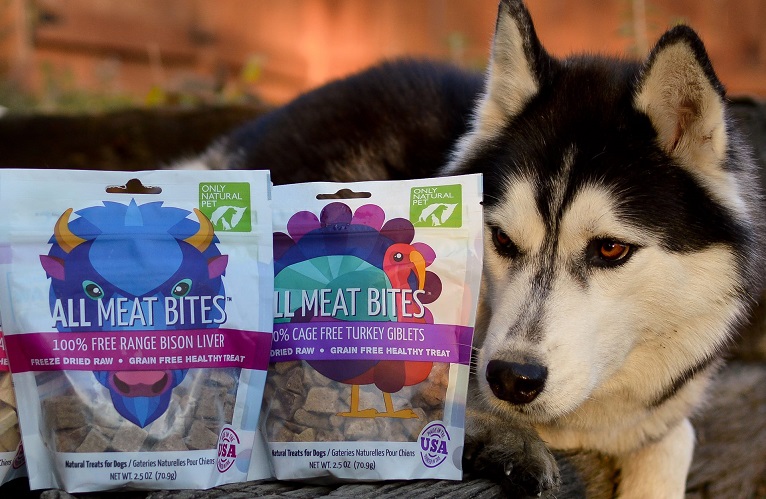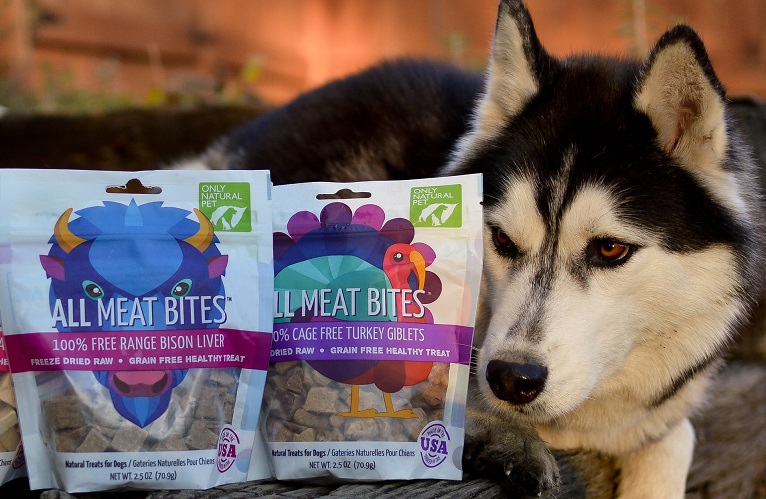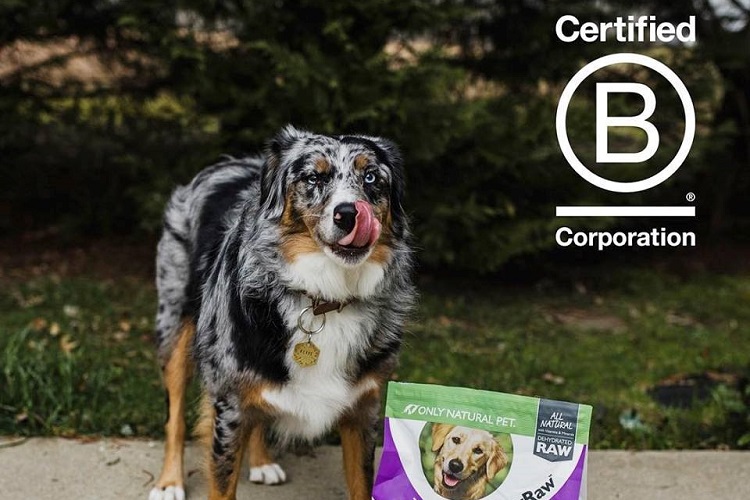Only Natural Pet: Redefining Sustainability in the Supply Chain
Best for Colorado: The Boulder-based company received its B Corp. certification in January
ColoradoBiz Staff //July 3, 2019//


Only Natural Pet: Redefining Sustainability in the Supply Chain
Best for Colorado: The Boulder-based company received its B Corp. certification in January
ColoradoBiz Staff //July 3, 2019//

Image Courtesy of @doubletrouble_husky
This interview is part of an ongoing series with ColoradoBiz Magazine to learn from Best for Colorado companies about the impact they have in our state.
With healthy eating on the rise, it should come as no surprise that Coloradans want their pets to eat just as well as they do. Only Natural Pet was founded in 2004 in Boulder by Marty Grosjean to do just that as well as bring transparency to pet health and nutrition.
In the years since the company has expanded to offer a selection of treats, flea and tick products, vitamins, supplements and holistic solutions.
Only Natural Pet was the first North American pet food and treat company to become a Certified B Corp. We sat down with Andy Downs, the company’s sustainability coordinator, to learn more about Only Natural Pet and its mission of bringing nutrition and sustainability to the pet market.
ColoradoBiz: Can you define the specific programs, practices and priorities that fall within your organization’s corporate social responsibility (CSR) approach?
Andy Downs: We are a mission-driven company, and that mission is pet health, as well as nutrition and sustainability. We’re really focused on the health of companion animals, and we’re also focused on our social and environmental impact as a company. Transparency fits into both of those fields for us.
One of the biggest things we have done to really back up our CSR is our Vendor Code of Conduct. The Vendor Code of Conduct sets expectations that we have with our suppliers to make sure they are following the ethical business practices that we follow. In the code of conduct we’re also holding out our hand to say, we’re a partner in this and we want to be there to answer sustainability questions and support you. We’re on that path together with our sourcing and vendors.
CB: How did you establish the objectives behind sourcing more responsibly? How do you ensure suppliers comply?
AD: The way we look at it is sustainable sourcing is as healthy sourcing. The main screening process is our unacceptable ingredients list, which includes 40 things we found to be objectionable to the best life and health for your pets. So, if a person is using those in their manufacturing process, we don’t consider them to be a reliable vendor to work with.
Third-party certifications are also helpful for us to make informed decisions on our supply chain. We work with the Global Animal Partnership, we rely on MSC (Certified Sustainable Seafood) and we look for non-GMO certification. We also rely on our Vendor Code of Conduct to make sure they are aware of our expectations and know we’re in this together to find solutions.
It’s a lot of work upfront, but it definitely pays dividends down the road because it’s getting everything in line so that you can make sure that you have a well running supply chain.
CB: What is most rewarding/challenging about the corporate responsibility aspect of your organization’s work? What areas are you most concentrated on right now and why?
AD: Our biggest concentration right now is the employee engagement aspect. We have implemented a sustainability goal into every team member’s annual review. It’s been a big help for us because peoples’ wages are then tied into the sustainability of the company. Our bonus plan is based on each employee’s goals and one of their goals is based on sustainability. We’re growing pretty fast right now, and we want to have a person at each of those locations who is understanding of what the company’s sustainability mission is and who is actively working to implement that with their colleagues.
In the past, everyone was associated sustainability with environmental sustainability, but with the B Corp process it’s given us that great opportunity to say how we do sustainability. It is environmental sustainability absolutely, but it’s also community sustainability; how we operate in the communities where we work; how our company is governed with transparency of financials and ensuring we are legally mission-locked; and how it affects workers and their satisfaction with their job and diversity in our workplace. Once you really broaden it to those four categories and let the team know these are all part of our sustainability mission, a lot more people get on board.

CB: What is your proudest achievement?
AD: Our proudest achievement is our B Corp certification, which just happened in January. That was a company-wide push that took a lot of people’s effort to come to realization. It was a nice way for us to put the stamp on our sustainability efforts.
CB: What is an obstacle you’ve had to overcome and how did you do so?
AD: Culture can be a difficult thing to change sometimes. You can’t just say, we’re a mission-driven sustainability company and expect everybody to know what that means or how to help support that mission.
I would say the biggest help in overcoming that challenge was the company-wide buy in, specifically from Marty, our founder. He was really the one that said, ‘I think B certification is important for Only Natural Pet, and it’s something that I want us to pursue.’ With him buying in from day one, it helped everyone to understand the importance of it to the company and to find their role in the certification process.
CB: What do you recommend for companies who are looking to source goods from local/environmentally conscious suppliers but don’t know where to start?
AD: We talk about the Pet Sustainability Coalition and our history with them. I really try to express to other companies who are looking to source more sustainably to look for collaboration.
Try to find an industry group like that if it exists, and if it isn’t there, I would encourage anyone to open up and work collaboratively with anyone in their industry. If you are expecting yourself to go at it alone, it’s going to seem like a really big uphill process, but if you have friends to rely on or people to reach out to that will share that advice, it can really help out.
CB: Why did you join Best for Colorado? And what are you hoping to gain from the partnership?
AD: The thing that I’ve enjoyed most from Best for Colorado is the relationships and idea sharing. It really takes that nervousness away from seeing if you are interested in sustainability and how you go about some of the challenges that we all have. With Best for Colorado, I go to an event and I’m surrounded by people who are all willing to talk about sustainability, and it makes things a lot easier. It is a hub for sustainability-aware and sustainability-conscious Colorado businesses to get together and really rely on each other to make sure we are all working towards similar goals.
Best for Colorado is a program of the Alliance Center. It allows Colorado companies to measure and improve their social and environmental impact, regardless of where they are on their corporate social responsibility journey. Best for Colorado offers programming and tools for all Colorado companies, including B Corps, to improve their practices and connect participating companies with local resources, education and support.






















